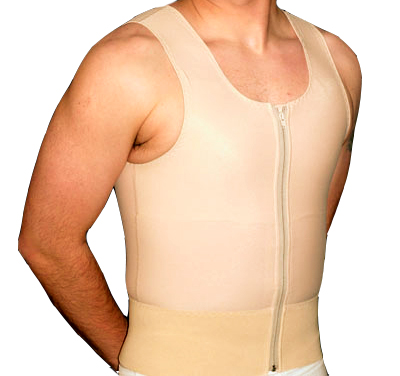Returning to Work
We understand that getting back to your daily routine is important, and you might be wondering when it’s safe to return to work. Here’s a simple guide:

Office or Desk Jobs: You can usually return to work the day after surgery. Before heading back to work, we recommend a quick follow-up visit to the clinic. The follow-up only takes about 20 minutes, ensuring your recovery is on track.

Physically Demanding Jobs: If your job involves physical labor, such as heavy lifting, operating machinery, or construction work, it's best to avoid strenuous activities for the first two weeks. This will help prevent any strain on the operated area and ensure a smooth recovery.

Exercise and Workouts: We encourage light physical activities to aid recovery. You can start leg workouts, light walking, or gentle jogging as early as a week after surgery. However, wait at least 4 weeks before resuming weightlifting or chest exercises. During the first month, avoid using your arms and chest too much to prevent complications.
Important Post-Op Care Tips

- Healthy Eating: Start with soft, gentle foods and avoid spicy or strong-tasting dishes. You can enjoy most foods, except for alcoholic beverages and overly salty meals.
- Avoid Smoking: Smoking can significantly delay the healing process and increase the risk of infection. This includes traditional cigarettes, e-cigarettes, hookah, and even exposure to secondhand smoke. Avoid smoking for at least 2 weeks post-surgery.
- Handling Fluid Leakage: It’s normal to experience a bit of fluid leakage during the first day. If this happens, replace the dressing with a sterile gauze. Make sure not to open the dressing point as the wound needs to stay protected from contamination.

- Compression Garment: Wearing your compression vest is crucial for your recovery. It prevents fluid accumulation, helps reduce swelling, and supports skin retraction. Wear it for 4 weeks—24 hours a day for the first 2 weeks, then 12 hours a day for the next 2 weeks.
- Showering and Bathing: You can take a shower 1 to 2 days after surgery with a waterproof band on the wound. For hot baths, saunas, or swimming, give your body 4 weeks to fully recover.
- Sponge Pad Care: If you were provided with a sponge pad, apply it around the areola for only 7 days. This helps with healing and provides gentle support.
What to Expect During Recovery
Your chest might appear asymmetrical, lumpy, swollen, or slightly dimpled. Don’t worry—this is a temporary phase that can last for 4 to 6 months. Light daily activities like walking can speed up recovery, but avoid lifting anything heavier than 40 pounds (about 18 kg) during the first week. It’s okay to roll luggage, but avoid lifting it.
- Massage and Stretching: After 2 weeks, start light massage and gentle stretching. The “Biobond (lumps)” under the skin may take 4 to 6 months to gradually decrease.
- Scarring: It’s normal to develop ‘Hypertrophic scars’ after chest surgery. Proper post-op care is essential to minimize their appearance.
When to Contact Us
our safety and comfort are our top priorities. Please reach out to us immediately if you experience any of the following symptoms within 3 to 4 days after surgery:
- Excessive pain
- High fever
- Yellowish discharge from the wound
- Persistent itching
We are here to support you every step of the way. If you have any questions or concerns, please do not hesitate to contact us. Your smooth and speedy recovery is our goal!
Ginecomastia istruzioni post-operatorie
COSA FARE DOPO L'INTERVENTO CHIRURGICO DI GINECOMASTIA Come [...]
Ginecomastia: processo per la consultazione e la chirurgia in giornata
La Clinica Evita offre un comodo processo per la consultazione in giornata e la chirurgia della ginecomastia, ideale per pazienti internazionali e a lunga distanza. Grazie a cure personalizzate, chirurghi esperti e partnership con hotel locali per soggiorni scontati, garantiamo un'esperienza chirurgica fluida e sicura a Seoul.
Ginecomastia chirurgia post-operatoria di routine
Come qualsiasi altro intervento chirurgico, il corpo ha bisogno di riposare e riprendersi dal trauma che ha esercitato durante la procedura e la chirurgia della ginecomastia non è diversa.
Come prepararsi per la consultazione
La consultazione non è una lezione del tuo chirurgo. Sentiti libero di sollevare alcune domande. Scrivilo in modo da non dimenticarlo. In questo modo sarai in grado di soddisfare qualsiasi curiosità e dubbio tu possa avere. Si può chiedere qualsiasi cosa, dalle domande sulla chirurgia stessa all'esperienza del chirurgo. Questo è particolarmente importante se si decide di avere l'intervento chirurgico lo stesso giorno.
Ginecomastia Chirurgia di Grado III | Clinica Evita
La chirurgia della ginecomastia di grado 3 presso la Clinica Evita prevede la liposuzione, la rimozione della ghiandola e la resezione della pelle per ottenere un torace più piatto e dall'aspetto più naturale. Il Dr. Francis Jeon sottolinea l'importanza dell'esercizio post-operatorio per prevenire l'effetto "petto che piange" e mantenere risultati ottimali. Scopri di più sul nostro approccio terapeutico personalizzato.
Drenaggio dopo l’intervento chirurgico
Understanding Your Surgical Drain After Surgery at Evita Clinic [...]
